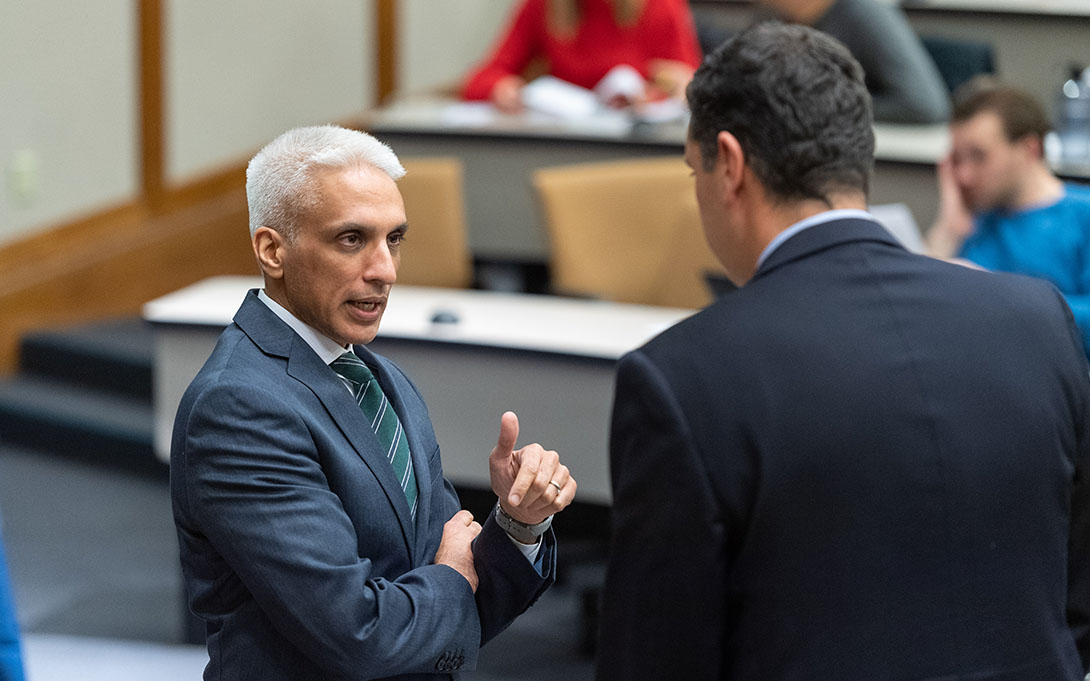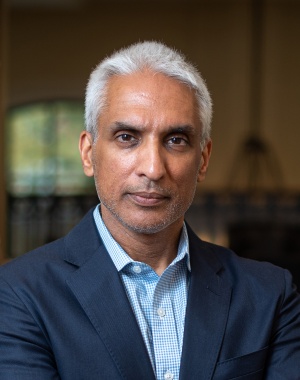
As we head into a second Trump administration, what are the President-Elect’s plans for maintaining national security? For addressing ongoing foreign conflicts in Ukraine and Israel? For redefining America’s role on the world’s stage? In an interview on Michigan Public’s “Stateside,” Javed Ali, a former member of Trump’s National Security Council and current professor of practice at the Ford School, shared his insights on what it was like to work in the first Trump Administration—and where he thinks the next one could be headed.
According to Ali, the first Trump administration facilitated a seismic shift in the United States’ national security paradigm. In the country's 2017 national security strategy, he noted that “there was a big shift from the threat of terrorism…to Russia and China as the two biggest nation-state threats to the United States.” Rather than changing this strategy, he argued that “the Biden administration has for the most part continued on that approach,” of emphasizing “Great Power Competition” over the counterterrorism orientation that had dominated since 9/11.
Ali identified one of Trump’s overarching foreign policy objectives from 2016 to 2020 as diminishing the United States’ overall level of foreign intervention and responsibility. From his experience in the White House, Ali gleaned that Trump “didn’t want the U.S. to be the world’s policeman…sending our troops abroad into these foreign conflicts where our vital national interests were not necessarily threatened…where we don’t know how to achieve our objectives, [and] we don’t know what victory looks like either.” Nonetheless, he granted that the global threat environment over the next four years will dictate whether or not Trump sticks to this instinct that America should “pull back from the world and let other countries assume the responsibilities that the U.S. traditionally, in the post-WWII era, had carried the water on.”
During the interview, Ali also reflected on staffing at the National Security Agency (NSA) during Trump’s first term—and whether or not the same dynamics would carry forward into his second. Ali counted himself among a number of non-partisan experts who took on NSA roles primarily to serve the interests of the United States: “There was no shortage of people from the career side of the federal government who wanted to work in the Trump White House, just for the opportunity,” he said, and “not because you’re either pro or for the person who’s the President.”
However, Ali posited that the traditional selection process for White House national security personnel could change if Project 2025 is adopted as a blueprint for Trump’s transition into his second term. Specifically, Ali recognized that the document’s language “suggests that they are looking for career folks that are more aligned with the President’s actual priorities versus the Constitutional oath that everyone takes to serve the country.”
